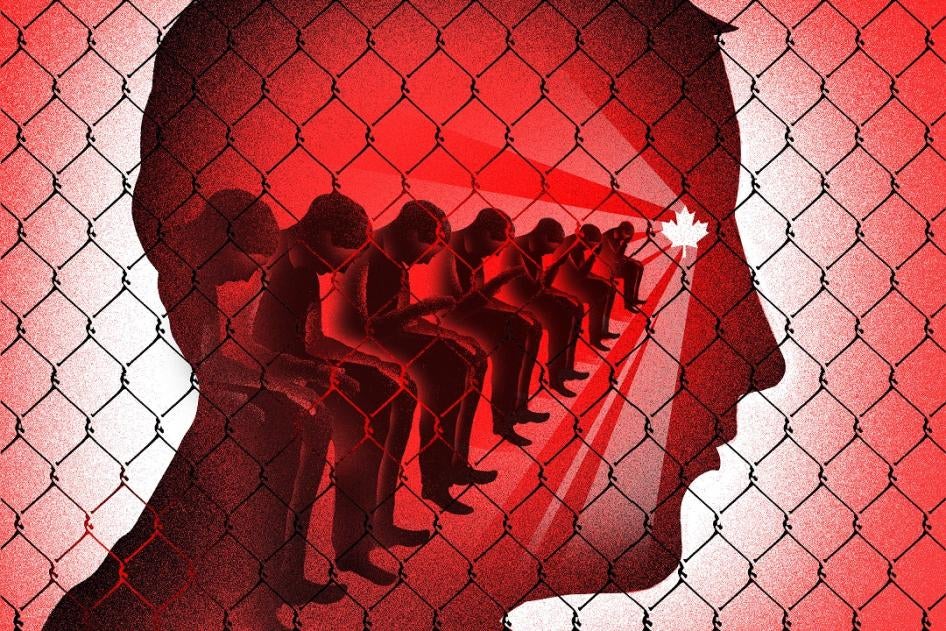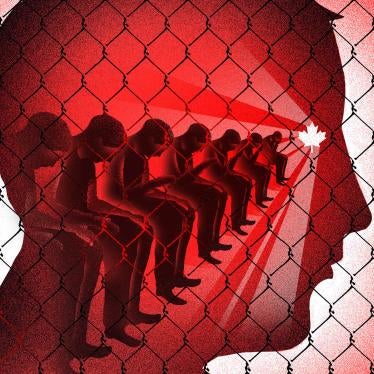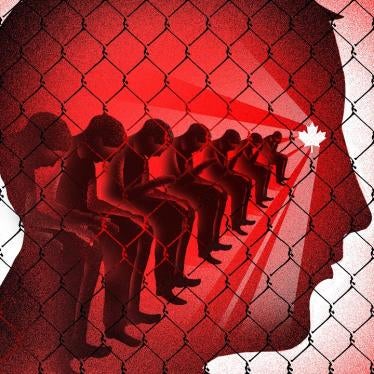“I felt like the world was ending for me,” an asylum seeker told us, describing her experience in immigration detention after fleeing her home country in Africa. “I thought, ‘Maybe I should have stayed back home and died there.’” She is only one of the hundreds of thousands of uprooted people who are detained around the world every year.
Stories of mistreatment of migrants and asylum seekers – particularly by US authorities – are widely covered in Canadian media. But what may come as a shock to Canadians is that the woman we interviewed experienced this abuse in Toronto.
She was arrested and handcuffed upon arriving at the airport in 2019. She was taken to the Toronto immigration detention centre and held alone in a cold cell with a metal bed, a toilet, and surveillance cameras. When she became sick, she reported it to a nurse, who gave her Tylenol and said, “I have no right to talk to you.”
The abusive nature of Canada’s immigration detention system is one of the country’s most disturbing secrets, and it is inconsistent with Canada’s international reputation as a welcoming place for refugees and newcomers from around the world.
The system has a wide reach and can ensnare people who come to Canada for protection or a better life, including refugee claimants, permanent residents, students, and temporary foreign workers. A total of 8,825 people were detained in the 2019-20 fiscal year alone.
In a new report about the subject, we document how immigration detainees in Canada experience some of the country’s most restrictive confinement, including solitary confinement and maximum-security provincial jails, despite not being held on criminal charges or convictions. They are handcuffed, shackled, searched, and restricted to small spaces with rigid routines and under constant surveillance. There is also no law limiting the length of time the authorities can incarcerate people in immigration detention.
Since 2016, over 300 people have spent a year or more of their lives in immigration detention. The lack of a clear release date can lead many to further despair, hopelessness, and thoughts of self harm. Those who are released may face unnecessary or disproportionate restrictions on liberty, such as curfews or the use of electronic monitoring bracelets.
Many people with mental health conditions experience discrimination in immigration detention and may be detained in more restrictive conditions because of their disability. In Ontario provincial jails, they are often held in solitary confinement. They may not be allowed to make independent decisions about their legal matters, with legally appointed representatives making decisions on their behalf. Many also face significant barriers to being released, and once they are released must adhere to stricter release conditions, which can lead to re-arrest.
Not even children are exempt from immigration detention. In 2019-2020, 138 children were held, 73 of them younger than 6. It’s unclear how many more were separated from their detained parents because the government does not keep track of this data.
An asylum seeker from a country in Asia described the separation from her two children while she was in immigration detention: “I begged the officers to let me be with my children, but they just refused. It will take a long time to take care of my children’s mental health. … They just keep asking me every day to promise that I won’t disappear.”
Immigration detention takes place across the country. Although Vancouver, Toronto and Montreal have federally run immigration detention centers, many immigration detainees are held in provincial jails. The border agency is responsible for immigration detainees, but its most recent departmental plan says it has “limited control over detention conditions” in provincial jails. It acknowledges that this “poses challenges in ensuring a common standard of care.”
Immigration detention will not be undone overnight. However, Canada should get on the path to abolishing this despicable practice. The government took a positive step last year by releasing immigration detainees at unprecedented rates because of the Covid-19 pandemic. Rather than return to business-as-usual as Covid cases come under control, Canada should use this opportunity to overhaul its immigration and refugee protection system to prevent human rights abuses. Canada should live up to its global reputation and treat all those who come here with the humanity and dignity they deserve.








